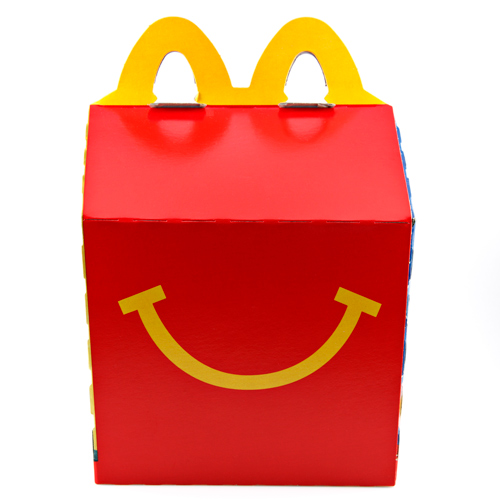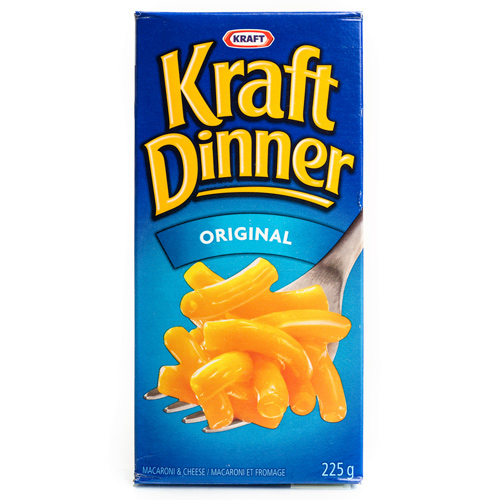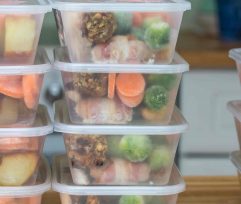After a long day of work, you are most probably focussed on just relaxing for a second. The thought of cooking a meal for your family is not even close to what you want to be doing. As tempting as it may be to turn to ready made foods to feed your children, relying on processed foods on a regular basis can be damaging to your family’s health.
Once you start serving processed foods to your children regularly—whether it’s for breakfast, lunch, or dinner; it can be difficult to stop. So if you haven’t started already, please don’t. But if you are guilty of relying heavily on processed foods, you might want to try to wean yourself off and start planning your meals for the week. It can seem like a lot of work, but for the health of your children it’s worth it. To help start you off, here are some foods you might want to stay away from when it comes to feeding your children.
1. Fast Food Kid Meals
 How easy is it to pull up to McDonald’s and wait 5-10 minutes for a quick easy meal that your children will probably love? Very easy, and very tempting. A Happy Meal contains a burger, fries, and sometimes a soda. So what are you really feeding your children when you get them a happy meal? In one cheeseburger there are seventy ingredients alone! The ingredients include all non-organic meat, dairy, vegetables, and fruits. A happy meal is around 540 calories, contains harmful GMOs and pesticides. It is hard to avoid GMOs when going to fast food chains, so the best thing to do is avoid them completely.
How easy is it to pull up to McDonald’s and wait 5-10 minutes for a quick easy meal that your children will probably love? Very easy, and very tempting. A Happy Meal contains a burger, fries, and sometimes a soda. So what are you really feeding your children when you get them a happy meal? In one cheeseburger there are seventy ingredients alone! The ingredients include all non-organic meat, dairy, vegetables, and fruits. A happy meal is around 540 calories, contains harmful GMOs and pesticides. It is hard to avoid GMOs when going to fast food chains, so the best thing to do is avoid them completely.
2. Yoplait Go–Gurt
When buying animal products you should always turn to the organic version. Go-gurt is popular, but it includes genetically modified dairy, cornstarch, sorbate carrageenan and 2/3 of the recommended amount of sugar for children in just one tube! Carrageenan is a thickener that has caused numerous intestinal issues in animals. The preservative sorbate can cause nausea, allergic reactions, and diarrhea. These risks just don’t seem worth it. Turning to organic snacks that will benefit your children’s health may take a littler more time—like pouring organic yogurt into a tupperware container instead of having a ready snack to put into the lunchbox—but taking the time can save you a lot of health problems down the track.
3. Boxed Mac ‘n’ Cheese
 Mac ‘n’ Cheese is very easy to prepare for your children, and can last a week in the fridge. Although easy and convenient, this is a very unhealthy choice for your children. The tasty dinner is filled with sodium and preservatives and lacks nutrients. Because of the high sodium, kids start craving the food more and more, as well as craving sweets. To prevent this, try turning to whole grain pasta and fresh cheese, which is also very easy to whip up for you children.
Mac ‘n’ Cheese is very easy to prepare for your children, and can last a week in the fridge. Although easy and convenient, this is a very unhealthy choice for your children. The tasty dinner is filled with sodium and preservatives and lacks nutrients. Because of the high sodium, kids start craving the food more and more, as well as craving sweets. To prevent this, try turning to whole grain pasta and fresh cheese, which is also very easy to whip up for you children.
4. Dipping Sauce
Try to not introduce your children to condiments as they add countless calories, sugars and fats to your children’s meals. The food you are serving them should be tasty enough without the extra sauces. If they love ketchup or ranch dressing start measuring out 1 or 2 ounces, and limit them to that amount for their meal.
5. Fried Frozen Finger Foods
Once children have had frozen chicken nuggets, fish sticks, meatballs, and mozzarella sticks, they typically crave these options as their meal choice. These foods can be very high in saturated fats, preservatives, sodium, and are of poor quality. Make sure you look at the saturated fat content if you buy these occasionally, then decipher whether or not the food is flash-fried (makes the batter stick) and try to choose whole-grain breading.
6. Raw Milk
Many people believe raw milk is a healthier alternative than pasteurized due to the digestive enzymes and nutrients that stay intact. Raw milk is as risky for children to drink, as non-pasteurized milk and is more likely to cause food-borne illness. Children are more susceptible to illnesses as it is, because their immune systems are not fully developed yet. So staying away from raw milk might be a good idea for your child..
The occasional treat should be allowed for all children, but it’s best to allow them these foods in moderation and educate them on why this is. It’s not your child’s choice what you buy at the grocery store, it’s your choice. So put their health first and fuel their bodies with rich nutrients as much as you can everyday.




